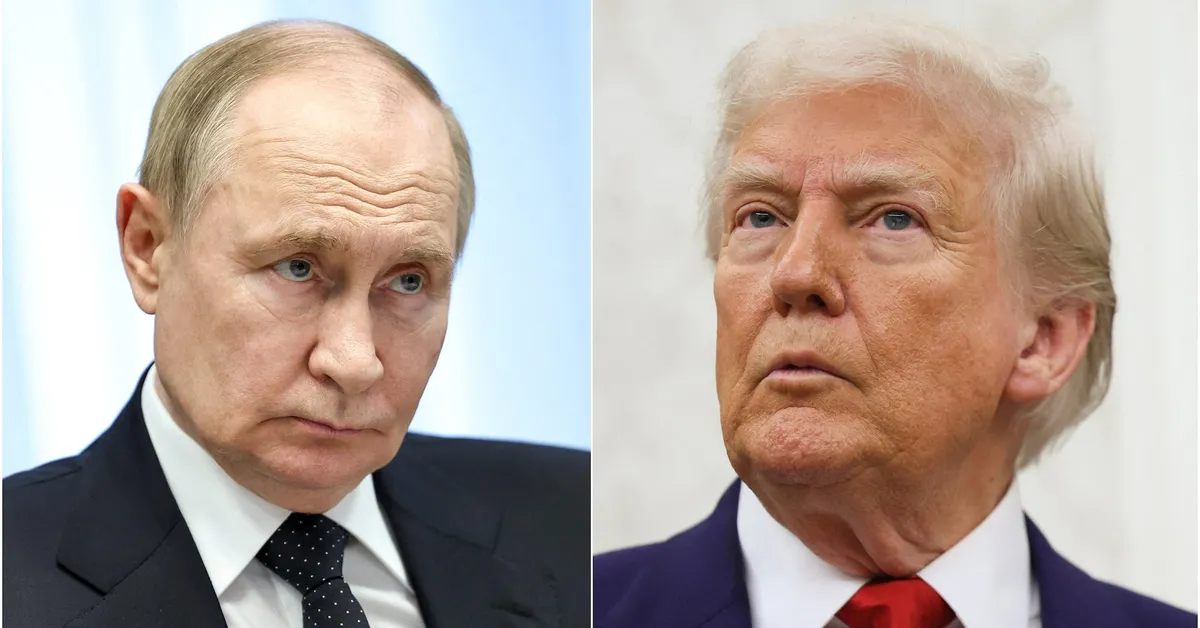
MOSCOW, Aug 15 (Reuters) - In a significant diplomatic engagement, Donald Trump and Vladimir Putin are set to hold talks in Alaska on Friday. The primary focus of these discussions will be Trump's initiative to establish a ceasefire deal regarding the ongoing conflict in Ukraine. Additionally, Putin is expected to present a last-minute proposal for a potential nuclear accord that could offer both leaders a face-saving resolution.
This summit marks the first in-person meeting between the Russian and U.S. leaders since Trump resumed his presidency. Conducted at a Cold War-era air force base, this meeting is imbued with heightened stakes, particularly for Ukrainian President Volodymyr Zelenskiy. Zelenskiy, who was not invited to the summit, along with his European allies, harbors concerns that Trump may prioritize a deal potentially detrimental to Ukraine's territorial integrity.
Trump is actively seeking a truce in the conflict that has persisted for over three and a half years, aiming to bolster his reputation as a global peacemaker—a title that could enhance his chances for the Nobel Peace Prize. For Putin, this summit serves as a strategic victory, allowing him to counter Western narratives that have sought to isolate Russia. His ability to engage directly with Trump, without the presence of Ukrainian representatives, is a long-standing desire.
The White House has confirmed that the summit will commence at 11 a.m. Alaska time (1900 GMT). Ahead of the meeting, Trump acknowledged the complexity of the conflict, stating that it has proven more challenging than initially anticipated. He emphasized the importance of potentially organizing a subsequent three-way summit involving Zelenskiy, should discussions with Putin yield positive results.
Sources close to the Kremlin indicate that there may be a willingness from Moscow to explore compromise solutions regarding Ukraine. Russian Foreign Minister Sergei Lavrov, a seasoned diplomat, noted that Russia typically refrains from disclosing its strategies prior to negotiations. Ukrainian officials and their European counterparts were encouraged by a recent communication where Trump allegedly affirmed that Ukraine must play a role in any discussions concerning territorial concessions.
Putin is operating under increasing economic pressures as Russia's wartime economy shows signs of strain. He seeks Trump’s assistance in alleviating the impact of stringent Western sanctions, or at the very least, preventing further sanctions from being imposed. Additionally, on the eve of the summit, Putin hinted at a new nuclear arms control agreement, aimed at replacing the last remaining treaty set to expire in February of next year.
In comments made prior to the summit, Trump expressed optimism that Putin would agree to a deal concerning Ukraine. This optimism contrasts with fluctuating expectations regarding the likelihood of a breakthrough in negotiations. Observers have noted that while Putin has set stringent conditions for a complete ceasefire, there remains the possibility of a temporary truce in the aerial conflict.
Amidst these discussions, Zelenskiy has accused Putin of attempting to buy time to evade U.S. secondary sanctions, firmly rejecting any notions of formally ceding territory to Moscow. Trump has suggested that land transfers could serve as a potential avenue to resolve the current deadlock. However, it remains uncertain if Putin is prepared to make significant concessions regarding Ukraine, particularly given his long-term ambitions for control over the region.
The stakes of this summit are high, with Putin aiming to secure a favorable outcome that he can tout as a victory domestically. His goals include complete control over the Donbas region, comprising the Donetsk and Luhansk areas, as well as full control over the Kherson and Zaporizhzhia regions. Additionally, he seeks to ensure that NATO membership remains off the table for Ukraine and to impose limits on the size of Ukraine's armed forces. Ukraine’s government views these demands as tantamount to capitulation, underscoring the complexity and challenges ahead in these critical negotiations.
Reporting by Andrew Osborn and Darya Korsunskaya in Moscow; Editing by Kevin Liffey, Jon Boyle and Frances Kerry